| Our Troops Rock! Thank you for all you do! |
For the freedom you enjoyed yesterday...
Thank the Veterans who served
in The United States Armed Forces. |
| |
Looking forward to tomorrow's freedom? Support The United States
Armed Forces Today! |
| |
| |
|
~ Hall of Heroes ~
Art Duncan
Info from here. |
| 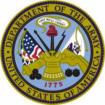 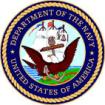 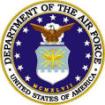 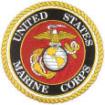 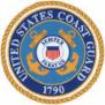
|
Sooo..... I am a little bit Olympic hockey crazy right now. Ten members of my beloved St. Louis Blues are playing in the Olympics on various teams - three on Team USA. One of those garnered a TON of attention yesterday when he scored multiple times in a shootout to lift Team USA over Russia. When I saw this graphic yesterday, it made me even MORE proud of T.J. Oshie!

It got me thinking - I wondered if there were any hockey players who were veterans. I found a few stories, and even though this one was Canadian, I thought you'd enjoy his story!
USA! USA! USA! |
 Captain William James Arthur Duncan (July 4, 1891 in Sault Ste. Marie, Ontario – April 13, 1975 in Aurora, Ontario) was a Canadian aviator and a professional ice hockey player, coach, and general manager. In 1926 he served as the first team captain, head coach, and general manager of the Detroit Cougars of the National Hockey League (NHL). Captain William James Arthur Duncan (July 4, 1891 in Sault Ste. Marie, Ontario – April 13, 1975 in Aurora, Ontario) was a Canadian aviator and a professional ice hockey player, coach, and general manager. In 1926 he served as the first team captain, head coach, and general manager of the Detroit Cougars of the National Hockey League (NHL). He interrupted his sports career to serve in World War I, and became a fighter ace credited with 11 official aerial victories.
Duncan debuted in professional hockey in the 1915–16 season.
Duncan's October 1, 1916 enlistment papers gave his birth date as July 4, 1891, and his birthplace as Sault Sainte Marie, Ontario, Canada. He was an accountant. He listed his next of kin as his mother, Mrs. W. A. Duncan. He listed his home address as his mother's place in Toronto. He also claimed to be serving in the 34th Regiment of the militia, which may be the basis for his direct commissioning as an officer.
During the 1916 and 1917 hockey seasons, Duncan continued to play, as his battalion fielded a team in the National Hockey Association both years. His transfer to France cut off his sporting career. |
Duncan first served with the 228th Battalion CEF in France as a lieutenant. On August 1, 1917, Lieutenant W. J. A. Duncan of the Canadian Railway Troops was appointed a Flying Officer in the Royal Flying Corps and seconded for duty with them. He was transferred to the Royal Flying Corps and assigned to 60 Squadron in September 1917 as a Royal Aircraft Factory SE.5a pilot with a roving commission.
Duncan scored his first aerial victory on November 6, 1917, when he destroyed a German DFW reconnaissance plane northeast of Polygon Wood. He began to accumulate wins. On the day the RFC was consolidated into the Royal Air Force, April 1, 1918, he shared his seventh victory with American ace John Griffith. On May 17, 1918, he raised his tally to nine. The next day, he was promoted to temporary captain. He would score twice more after that, destroying an LVG on June 3 and busting a German observation balloon on June 5, 1918. He was returned to Home Establishment on June 30, 1918. A summary of his victories included an enemy observation balloon destroyed, an enemy fighter plane captured, seven enemy planes destroyed (including four shared wins), and two enemy airplanes driven down out of control.
His combat exploits won him the award of the Military Cross, gazetted on July 26, 1918: For conspicuous gallantry and devotion to duty. On one occasion he attacked and shot down an enemy plane which had been engaged at firing on our infantry. He then led his patrol over the enemy's lines, dived down to an altitude of 100 feet, and attacked large numbers of hostile infantry with machinegun fire, causing the utmost panic amongst them and inflicting heavy casualties. His continuous gallantry and initiative have been most conspicuous.
An award of a Bar to the Military Cross in lieu of a second award followed on September 16, 1918: For conspicuous gallantry and devotion to duty. This officer sighted fifteen enemy scouts attacking eight of ours and immediately joined in, destroying one enemy aeroplane, which fell with a wing off. He then attacked and drove down three other machines, maintaining the fight until the eight had got back to their lines. He has also, with another officer, destroyed an Albatross scout, which he followed down to a height of 200 feet, in spite of heavy machine-gun fire from the ground. |
On March 31, 1919, Duncan resigned his commission upon ceasing to be employed by the Royal Air Force.
He played eight seasons in the Pacific Coast Hockey Association with the Vancouver Millionaires (1915–16; 1918–19–1921–22) and Vancouver Maroons (1922–23–1924–25). He played with the Calgary Tigers of the Western Hockey League for one season (1925–26). He also played with the Detroit Cougars (1926–27) and Toronto Maple Leafs (1927–28–1931–32) in the National Hockey League. Duncan served as player-coach with both the Cougars and the Maple Leafs. |
| Please remember the Canteen is here to honor, support and entertain our troops and their families. This is a politics-free zone! Thanks for helping us in our mission! |
|
|